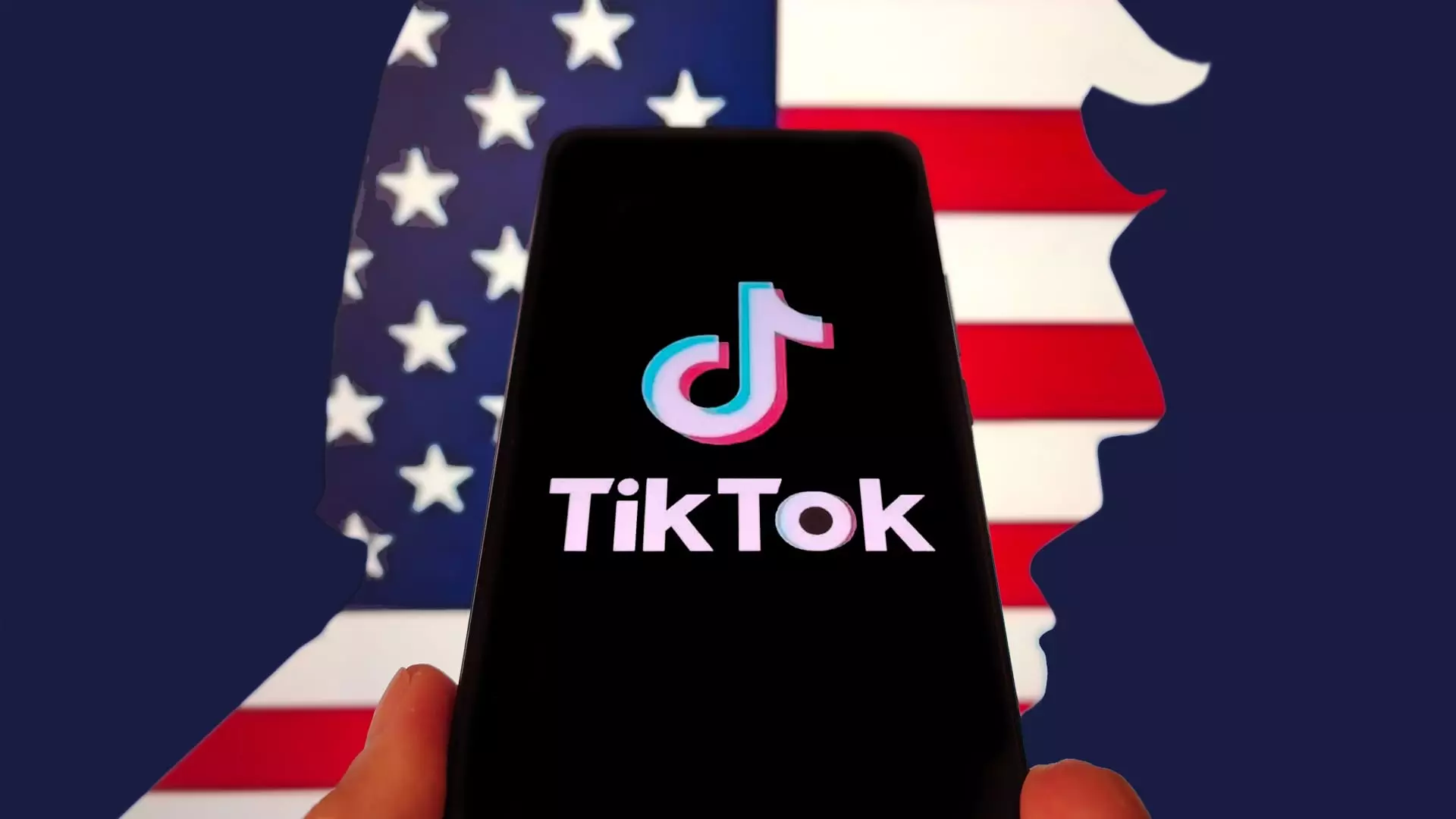The ongoing saga between the U.S. government and TikTok reveals more than just a battle over app downloads; it underscores a deeper tension in American policy regarding technology and trade. The recent extension allowing TikTok to remain on Apple’s App Store for an additional 75 days raises substantive questions about the motivations behind the decisions made at the highest levels of power. Is this really a matter of national security, or is it merely a strategic economic negotiation cloaked in the guise of patriotism?
The assurances provided by Attorney General Pam Bondi to Apple serve as a pivotal moment in the game of cat and mouse that pits a popular social media platform against the backdrop of geopolitical tensions. President Trump’s executive order presented a clear deadline for ByteDance, the Chinese parent company of TikTok, forcing them to offload their U.S. operations. However, the decision to extend this deadline signals that economic interests may be tempering the originally stated national security concerns.
Political Theater at its Finest
One cannot overlook the theatricality of this political maneuvering. Trump’s administration has made headlines with promises of aggressive action against foreign entities affecting American interests; yet, here they are bending the rules to accommodate a tech giant that, ironically, has been demonized for its ties to China. The tariffs imposed on China seem as much a bargaining chip as they are a matter of economics. When Trump suggests that he might ease tariff pressures if ByteDance complies, it transforms the narrative into a mere transaction rather than a serious national security issue.
Furthermore, the effectiveness of the U.S. government’s stance on digital sovereignty appears questionable. If TikTok were genuinely the threat that officials claim, would they truly be negotiating its existence on the App Store instead of outright banning it? The situation feels less like a concerted effort to protect American interests and more like a dramatized episode of political bargaining where the stakes are not as considerable as they are made to seem.
Public Sentiment and Corporate Responsibility
The general public’s perception of TikTok reflects a broader array of sentiments. While many view it simply as a platform for fun, creativity, and connection, others are more cautious, recognizing the valid concerns about data privacy and foreign influence. This dichotomy presents a challenging landscape for companies like Apple, which must navigate the choppy waters of consumer trust alongside government compliance.
Apple’s stance in this debate is also telling. By reinstating TikTok after a prior ban, they risk alienating consumers who remain mindful of data safety. The company is walking a fine line between acting under governmental authority and catering to a user base that values transparency. Allowing TikTok to remain in the App Store under the current circumstances may protect immediate profits but could compromise long-term consumer trust.
In a political climate marked by rapid change and unpredictability, the question lingers: how much longer will the American public accept these uneasy compromises? The TikTok debacle may yet serve as a critical juncture in the broader conversation around tech, national identity, and the political landscape. Engaging authentically in these debates will be vital for the future credibility of both governmental bodies and corporations alike.

